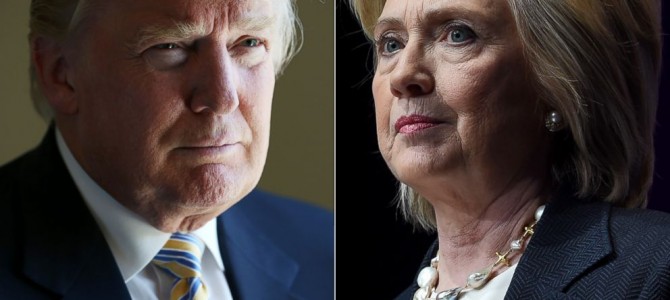Donald Trump is on the path to win the presidency with a resounding margin. The most likely scenario, after all the counting is over, gives him 306 electoral votes. Hillary Clinton will end up with 232.
Nonetheless, Clinton is on track to win the popular vote. She is ahead by more than half a million votes, according to the present tally. This has caused a lot of frustration among Clinton supporters. A widely circulated petition argues that because Clinton will likely have won the popular vote, electors should vote for her even if their particular state went for Trump. In other words, the Electoral College should vote for Hillary Clinton because she will win the popular vote.
This frustration is understandable. Given the current Electoral College system, a candidate can win the presidency even if he or she does not attract the most number of votes. Given the divisive nature of this year’s election season, tensions are high.
Rule Changes Alter Play
Moreover, it is also understandable that people want to change the system going forward. There are many reasons in favor of doing so. For one, the system in its current form gives an outsized influence to voters from small states. Second, voters in deep blue states like California or New York, or deep red states like Kentucky, have very little influence compared to voters in swing states like Florida or New Hampshire.
Perhaps even more importantly, the system incentivizes candidates to speak more to the concerns of voters in swing states.
These are all good reasons to want the system to change so the president is elected based on the popular vote. However, calls to change the rules ex post facto are misguided. We have no reason to think Democrats would have won had the election been based on the popular vote to begin with.
If the name of the game were to win the popular vote, both parties would have campaigned much more in big states like New York, Texas, and California. As a result, their messaging, polling, and outreach programs would have looked markedly different. Who knows what the popular vote would have been in that case?
Given the electoral system in its present form, parties aim to maximize electoral votes, not the popular vote, subject to budgetary constraints. Hence they play their ads and organize rallies in swing states because this is the best way to spend their money. The chance that a campaign dollar will make a difference is much greater if that dollar is spent in New Hampshire than in New York.
Primaries Would Also Change
The primary process would also look very different for both parties if the presidential election ultimately hinged on the popular vote. To remain competitive, both parties would design their primaries to favor candidates who had the best shot to win the popular vote in the general election.
The simplest way to do this would be to base the primaries on popular vote, also. The Republican nominee would then be the candidate who received the most votes from registered Republicans (and perhaps Independents), and likewise for the Democrats.
But if that were the case from the beginning, it’s not clear that Trump would have been the Republican nominee. Nor is it clear that Clinton would have been the Democratic nominee. The whole process might have looked very different.
The name of the game in this election was to win the most electoral votes. Clinton lost that game, and Trump won. Frustrated Clinton supporters should work towards reforming the system so that future presidents are those who win the popular vote. For now, Trump will be president for the next four years. That’s a reality we all have to accept.








